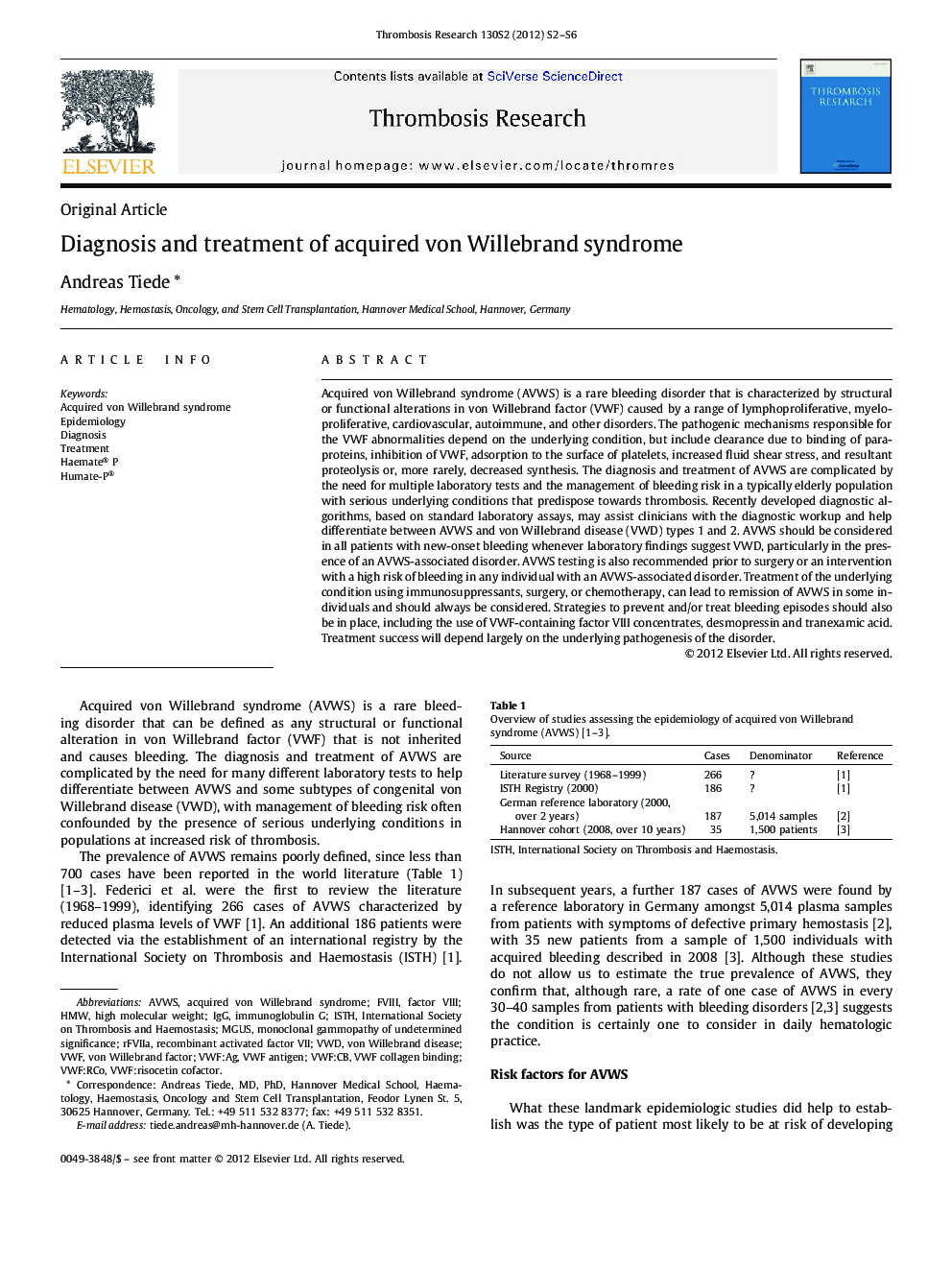| Article ID | Journal | Published Year | Pages | File Type |
|---|---|---|---|---|
| 3028814 | Thrombosis Research | 2012 | 5 Pages |
Acquired von Willebrand syndrome (AVWS) is a rare bleeding disorder that is characterized by structural or functional alterations in von Willebrand factor (VWF) caused by a range of lymphoproliferative, myeloproliferative, cardiovascular, autoimmune, and other disorders. The pathogenic mechanisms responsible for the VWF abnormalities depend on the underlying condition, but include clearance due to binding of paraproteins, inhibition of VWF, adsorption to the surface of platelets, increased fluid shear stress, and resultant proteolysis or, more rarely, decreased synthesis. The diagnosis and treatment of AVWS are complicated by the need for multiple laboratory tests and the management of bleeding risk in a typically elderly population with serious underlying conditions that predispose towards thrombosis. Recently developed diagnostic algorithms, based on standard laboratory assays, may assist clinicians with the diagnostic workup and help differentiate between AVWS and von Willebrand disease (VWD) types 1 and 2. AVWS should be considered in all patients with new-onset bleeding whenever laboratory findings suggest VWD, particularly in the presence of an AVWS-associated disorder. AVWS testing is also recommended prior to surgery or an intervention with a high risk of bleeding in any individual with an AVWS-associated disorder. Treatment of the underlying condition using immunosuppressants, surgery, or chemotherapy, can lead to remission of AVWS in some individuals and should always be considered. Strategies to prevent and/or treat bleeding episodes should also be in place, including the use of VWF-containing factor VIII concentrates, desmopressin and tranexamic acid. Treatment success will depend largely on the underlying pathogenesis of the disorder.
